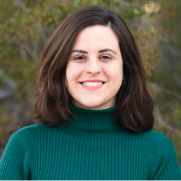Writing and technology—either together or separately—have always played a big role in my identity. I was a middle-class Brazilian kid in the early 1990s. So I would write about my feelings in a journal, read and replicate poems, play the synthesizer, and eventually type on our family Windows 98 computer.
As a teenager, some of the first times when I remember finding genuine community were not necessarily in school environments, but online, and to the sound of the dial-up internet. It was the early popularity of email and MSN; RPG online forums, Myspace, Orkut (a proto-version of Facebook, owned by Google, that was popular in Brazil); and Twitter, which was a staple throughout my high school years. These platforms offered an outlet for me to develop a strong sense of self. Among many of the anecdotes I have due to being online—the most meaningful is that my marriage has its roots in early 2010’s Brazilian Twitter. My partner and I reconnected years later, and to this day we often rely on our shared cultural references and mutual connections from the platform.
Yet writing and technology did not only shape my upbringing and personal life but played a major role in my professional identity across languages. I acknowledge all the privileges that led me to learn English in a Global South country in Latin America and, leveraging my interest in global culture, I decided to pursue a major in Languages and Literature and become an English teacher. I incorporated my tech-savviness and my intercultural curiosity into my own pedagogical ethos. In addition, beyond the classroom, I also experimented with editorial roles, copyediting, and working with technical and academic genres.
Thais presenting at the Council for Programs in Technical and Scientific Communication (CPTSC) Conference in October 2024.
One major experience was when I worked at our Brazilian writing center and got to develop a technical translator identity across Portuguese and English. I won’t extend myself as I’ve narrated this story on a recent Blog Carnival here at DRC, but through this role, I could explore the connection between Applied linguistics and identity in writing in my first solo research project. Looking back, that is when I gained confidence and learned about Rhetoric and Composition as a field. Even before I formally entered the field, digital resources like RhetMap and Kairos offered me an impressive introduction to its scholarship and community, leading me eventually to pursue my PhD at the University of Arizona.
My intention upon starting the PhD was to integrate my Applied Linguistics and ESL background with writing studies through L2 writing. However, after I took an Introduction to Professional and Technical Writing course with Dr. Ann Shivers-McNair, I fell in love with Computers & Composition and Technical and Professional Communication scholarship. I found a disciplinary home for my editorial, technical translation, and editing experience, as well as my interests in writing technologies and their implications
Though I feel welcomed in the discipline, I still grapple with my positionality and Locus of Enunciation as a Latina from Brazil in a U.S. academic context. I reckon that I am “privileged within Brazil itself,” but my linguistic, educational, and cultural backgrounds are “often positioned in marginalized ways within the global academic context” (Diniz de Figueiredo & Martinez, 2021, p. 356). With this new localization, my identity just keeps becoming more complex, and that’s why I… keep writing.
As an instructor, I invite my students to do the same. I want them to realize that their unique experiences and voices are valuable, and I encourage them to explore writing as a way of articulating and even discovering their identities through digital technologies, much like I did. Our writing classrooms should be as diverse as the voices within them, and that’s why I approach each course with a commitment to creating an environment where multilingual, multicultural perspectives don’t just ‘fit’—they thrive.
I am excited to be joining the DRC early in my doctoral program as I explore these identity questions and my research interests. I hope to refine them within social justice and decoloniality, digital literacies, language accessibility in online platforms, and technical documentation frameworks — derived from my background in writing centers and Brazilian higher education. I look forward to collaborating with and learning from other fellows and scholars in the field.
A montage that represents Thais. Teaching ESL in Brazil, ENGL 102 at the University of Arizona, her desk setup with dual screens and personal items (Daruma dolls and a cactus), computers representing her time at CAPA writing center, and presenting at an academic conference.
You can reach me via email at tcons@arizona.edu and learn about my work on my Researchgate or Google Scholar pages. And even if it’s not my original teenage account, I am also on X(formerly Twitter) for academic connections.
————————
Works cited
Diniz De Figueiredo, E. H., & Martinez, J. (2021). The Locus of Enunciation as a Way to Confront Epistemological Racism and Decolonize Scholarly Knowledge. Applied Linguistics, 42(2), 355–359. https://doi.org/10.1093/applin/amz061

